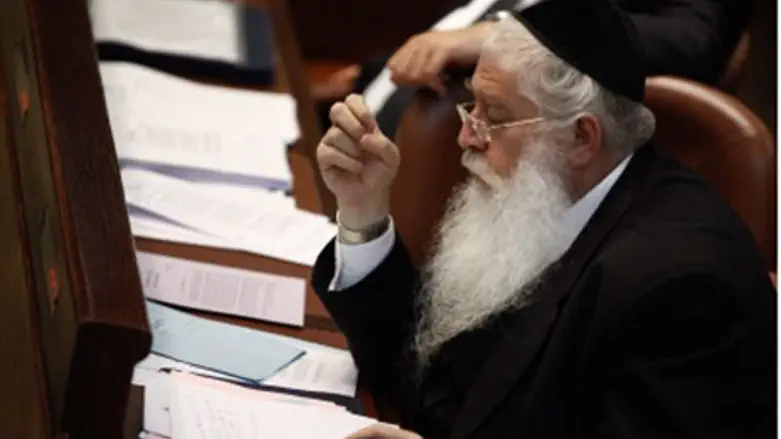
MK Meir Porush of the hareidi-religious Yahadut Hatorah (UTJ) party expressed firm opposition Tuesday to a proposal to reduce the number of Chief Rabbis from two to one.
If the government wants to save money, it could consider reducing the number of politicians rather than the number of rabbis, he suggested.
“The government ministers have destroyed what was good with their legislation regarding the hareidi community, and now they are continuing to sow destruction,” he accused.
“In the name of savings, they choose to cut back on the post of Chief Rabbi in particular, as if there is no waste elsewhere,” he continued.
“We see two people serving as Deputy Prime Minister, and in other government positions. Similarly, the state of Israel does not even think to unite small towns under one municipality, or to cut the number of deputy mayors in the name of budget efficiency,” he argued. “The reason is clear: because this way the cities can be managed more effectively.”
“Only when it comes to the Rabbinate does the government decide to ‘try out’ this method of cutting positions,” he charged. “Can one rabbi serve two communities? Of course not. This is nothing but hatred of religion, which has driven the government ministers out of their minds.”
Minister of Economy Naftali Bennett (Jewish Home/Bayit Yehudi) and Justice Minister Tzipi Livni (HaTnua) suggested Tuesday that Israel no longer needs separate Chief Rabbis for the Sephardi and Ashkenazi communities – Jews of Spanish/Middle Eastern descent and Jews of European descent, respectively.
The law would also split the Rabbinate from the system of batei din, courts which rule according to Jewish law (halakhah). Currently, the Chief Rabbi is appointed as president of the batei din court system regardless of whether he has experience as a judge (dayan) in the courts.
Porush, like other members of his party, has strongly differed with the government on several key issues, most notably the issue of mandatory military service for hareidi-religious men.